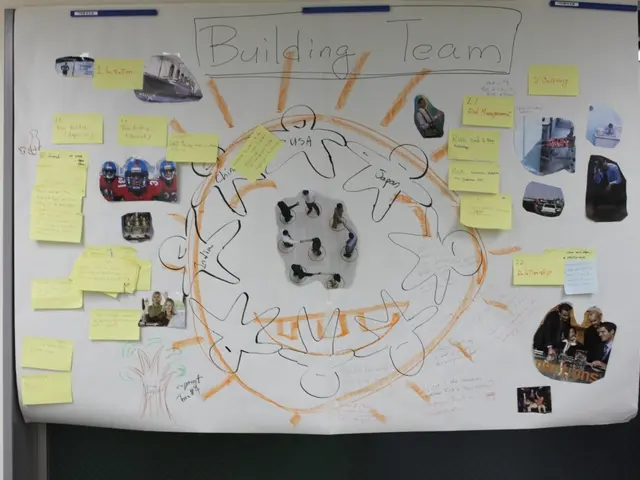Doing the Dirty Work: Guardians Ad Litem and Independent Advocates in Dementia Cases
Advising on the Benefits of an Independent Advocate for Legal Affairs of Dementia Sufferers
Navigating legal matters with dementia can be a twisted juggle—not just for those with the condition, but also for their loved ones. Dementia clouds more than just memory; it warps thinking, comprehension, and decision-making abilities. This can create a folly in proceedings like property sales, will drafting, and healthcare decisions—tasks that necessitate a clear mind. So, what’s a person to do? Enter the guardians ad litem and independent advocates, your new best friends in court.
What's a Guardian ad Litem?
Think of a guardian ad litem (often called GAL) as a superhero for the courts. They swoop in to save the day, speaking for the weak and powerless. When someone can't articulate their thoughts or understand the drama unfolding in the courtroom, the GAL is their voice. The GAL doesn't play favorites. They're not on your family's side, and they're not working for the judge, either. Their sole mission is to ensure that those with dementia receive a fair shake during hearings.
The GAL sits down with the individual afflicted by dementia, tries to grasp their desires, and expounds upon them in court. They also enforce their rights, ensuring they aren't overlooked in the court proceedings.
What's an Independent Advocate?
When the going gets tough, an independent advocate is your go-to gal (or guy). They help people make themselves heard when they can't communicate on their own. In the clutches of dementia, it's not uncommon for people to forget what they want, grow bewildered easily, or get lost in translation during legal proceedings. An independent advocate steps in to decipher the conundrum and champion the individual's case. They don't take sides and don't share allegiances with family members or court officials. It's all about ensuring justice outweighs the struggle for those with dementia.
When the Chips Are Down
What happens when someone’s unable to make decisions? They can be manipulated, bullied, or taken advantage of. Their money, property, or rights can disappear down the drain. The saddest part? It’s not always strangers pulling the strings—family members, too, may be hell-bent on self-serving objectives. But fear not, for an impartial witness stands ready to bring sanity to the chaos.
Consider a scenario where your dear ol' ma is grappling with dementia, living in a house she’s been in for years. Her kids want to sell the property, but it's unclear if she fully grasps the implications. The judge senses complications and appoints a GAL. This guardian ad litem steps up to the plate, conducting interviews with the family, speaking with physicians, visiting the house, and investigating all the relevant details to determine whether selling the property is in Mama's best interest.
Who Calls in the Big Guns?
Don’t wait for your problems to escalate before seeking help. If you suspect foul play or see signs of manipulation, you can take the initiative and request a guardian ad litem or independent advocate. Look for these telltale signs:
- The person with dementia is persistently confused.
- Family disagreements are rife.
- Someone is coercing them into making big decisions.
- You think elder abuse or neglect may be an issue.
- Legal shenanigans involving money or property are on the horizon.
Be Forewarned: Ain't No Free Ride
Price tags for these legal powerhouses vary depending on location, but not to worry—there are affordable options. Some guardians ad litem are paid for by the court, while others may be covered in a cost-sharing arrangement among the parties involved. Independent advocates may work for nonprofit organizations, providing their services gratis. Consult your local court or legal aid office for options if finances are tight.
Do I Negotiate with My Advocate?
While they fight for you, they don't make the final call. They don't control money or property, and they don't command you to act a certain way. They're in a position to listen—to understand and to decipher your needs behind the golden veil of confusion. If they determine that the person with dementia simply can't make decisions safely, however, they report the situation to the court, which takes control of the proceedings moving forward.
Guardians ad litem and independent advocates are essential in dementia cases. They stand for what's right, for the weak and vulnerable. Their presence safeguards the rights and interests of those who can't speak for themselves. They ensure that a clear, impartial voice is heard in court, so the power players aren't able to take advantage of those dealing with dementia. Grab hold of these advocates when you need them, and they'll help navigate the tricky waters of court proceedings.
- Science has become increasingly involved in workplace-wellness programs, integrating mental health, fitness and exercise, nutrition, and skin care to foster a healthy work environment.
- The relevance of health and wellness in mens' health discussions has gained traction, with a focus on prostate health, mental well-being, and age-related concerns.
- In light of rising awareness, the importance of women's health issues, such as menopause management, reproductive rights, and breast health, is being emphasized.
- Seeking therapies and treatments for dementia patients has expanded to include cognitive stimulation, pharmacological interventions, and perhaps even the integration of technology in the future.
- In addition to dementia, conversations surrounding parenting have evolved to encompass aspects like mental health, communication skills, and holistic child development.
- As the legal system continues to evolve, it becomes important for families and caregivers to understand the benefits of guardians ad litem and independent advocates, who can help ensure fair and just health and wellness decisions in the case of aging individuals affected by dementia.







